Morocco
Moroccans began voting Wednesday morning in a general election that will determine the future of the ruling Islamist PJD party.
Polling stations opened at 08:00 local time (07:00 GMT) and will close at 19:00 (18:00 GMT). The first estimates are expected in the evening.
"All to the polls!", calls the daily L'Economiste, for which the turnout is the "real issue of today's elections". Turnout had plateaued at 43% during the 2016 legislative elections.
Some 18 million voters will elect - for the first time - the 395 deputies of the House of Representatives and more than 31,000 communal and regional representatives.
The head of government comes from the party that won the legislative elections. He is appointed by King Mohammed VI to form his executive for a five-year term.
In this kingdom of 36 million inhabitants, decisions and major orientations in strategic sectors remain the prerogative of the monarch.
The Justice and Development Party (PJD, moderate Islamist), led by outgoing Prime Minister Saad-Eddine El Othmani, has long been in opposition and hopes to seek a third consecutive term as head of government.
The PJD won a historic electoral victory after the protests of the "February 20 Movement" - the Moroccan version of the 2011 Arab Spring - which called for an end to "corruption and despotism".
For two weeks, the electoral campaign, marked by the absence of major political rallies due to the pandemic, was at a standstill for a long time before giving rise in recent days to a lively confrontation between the PJD and its liberal rival from the National Rally of Independents (RNI), two of the favourites for the election.
- Suspicions" -
Former head of government and former PJD secretary general Abdelilah Benkirane, who is still influential, came out of the woodwork to slam Aziz Akhannouch, RNI boss and wealthy businessman, in a video posted on Facebook. "The presidency of the government needs a political personality with integrity around whom there are no suspicions," Benkirane said.
Minister of Agriculture since 2007, Mr. Akhannouch retorted on Monday, in a local media, that the Islamists' criticisms were "an admission of failure" and "only aim at sowing discord".
The latter, head of one of the country's largest fortunes and described as close to the royal palace, played a key role in the formation of the previous government, controlling portfolios such as the economy and finance or industry.
In the absence of opinion polls, local media predictions also point to the chances of the Authenticity and Modernity Party (PAM, liberal) and the Istiqlal Party (centre-right), both in opposition.
The campaign, which ended at midnight on Tuesday, has been marred by accusations of vote buying.
While the PJD denounced the "massive" use of money, without naming any party, the number one of the PAM, Abdellatif Ouahbi, accused the RNI by name. Accusations "categorically rejected" by the party incriminated.
On the other hand, relations between the WFP, the first opposition party, and the Islamists, have recently calmed down.
- No polarization -
This is the first time since Morocco held its first elections in 1960 that the distribution of seats in the House of Representatives will be based on the number of registered voters, not voters.
This new method of calculation is expected to disadvantage the large parties, to the benefit of the smaller parties. Only the PJD is opposed to it, considering itself "wronged".
If it achieves the same score as in 2016, the PJD will only get 80 to 85 seats this time, according to estimates, compared to 125 at the time. This would complicate its task of forming a new government coalition if it wins.
The electoral contest is characterized by a lack of clear-cut polarization on policy choices.
"We want elected officials with a clear vision, not people who manage things on a day-to-day basis," Abdeljalil Skaïti, 43, told AFP.
Whatever the results of the next election, all political parties are expected to adopt a charter in the future, based on the "new development model", which prefigures a "new generation of reforms and projects", as Mohammed VI recently promised.




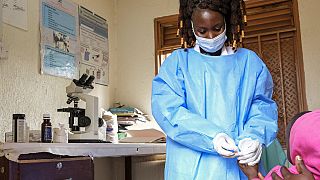
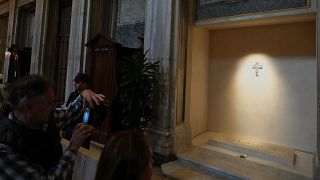
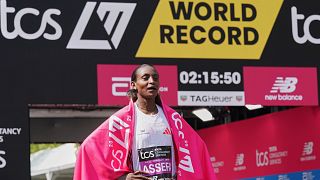
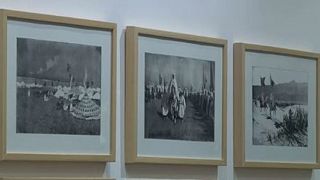
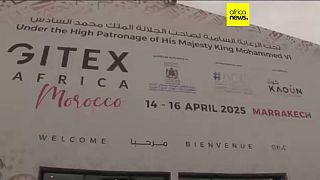
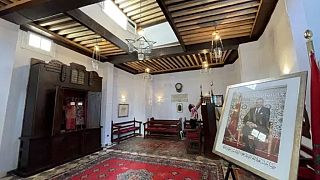
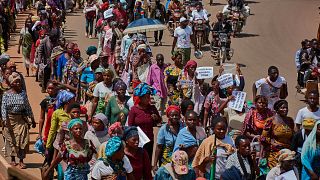
Go to video
Exhibition in Morocco explores a world of color
Go to video
The EU moves to fast-track asylum claims by migrants from 7 countries to speed deportation
00:50
Spain: human trafficking ring smuggling moroccans into europe dismantled
Go to video
France and Algeria resume diplomatic talks aimed at mending rift
01:59
‘Rassemblement des Bâtisseurs’ gains support ahead of Gabon election
Go to video
Ghana and Morocco move to scrap visa requirements